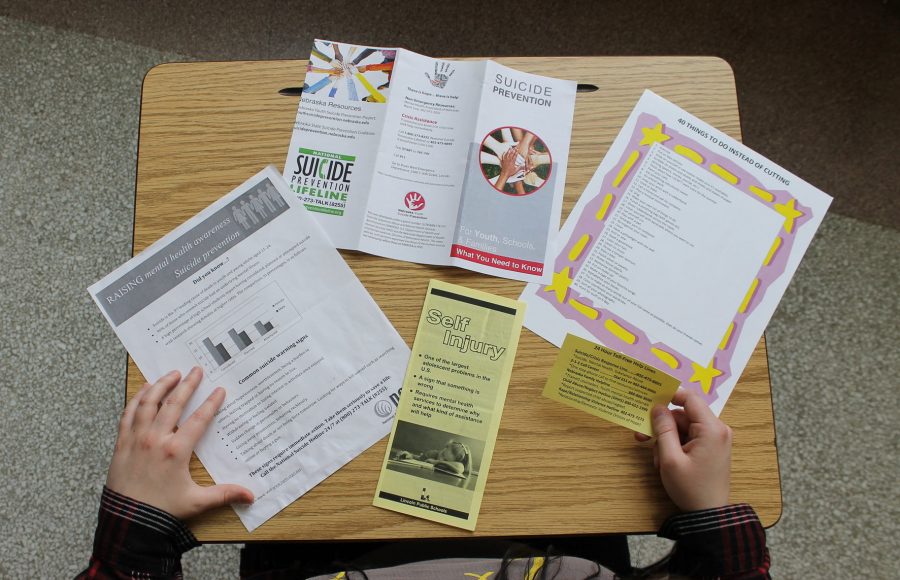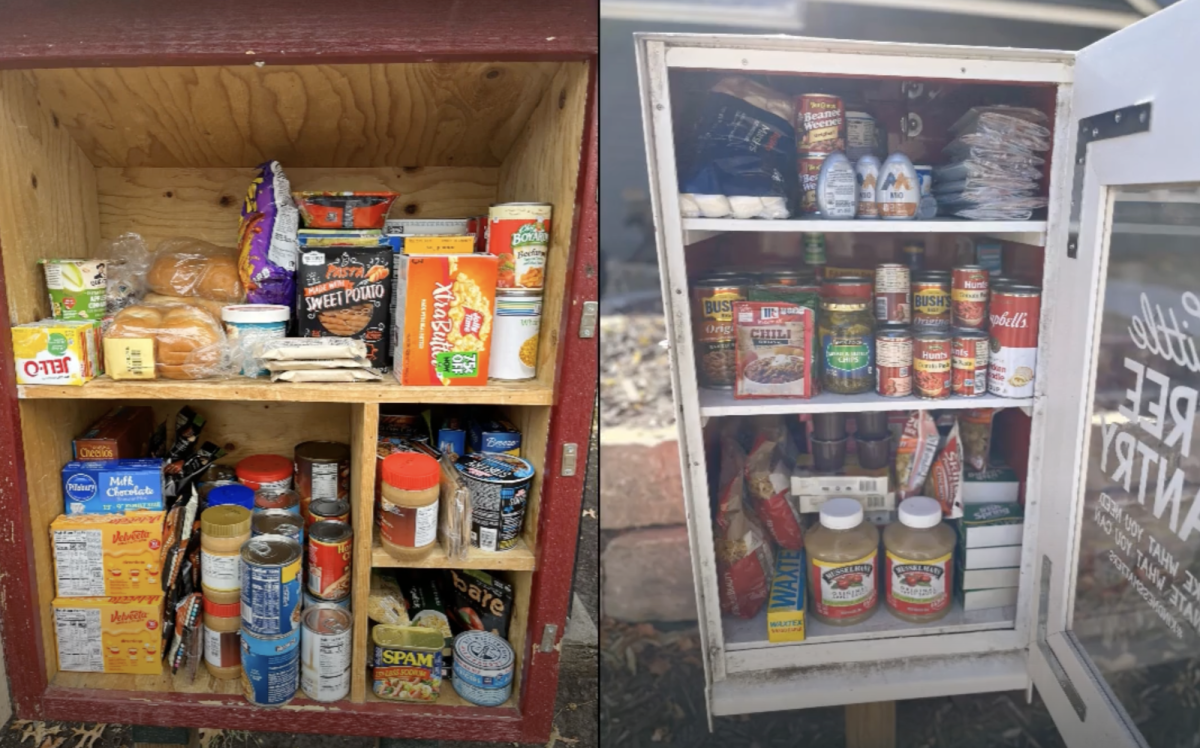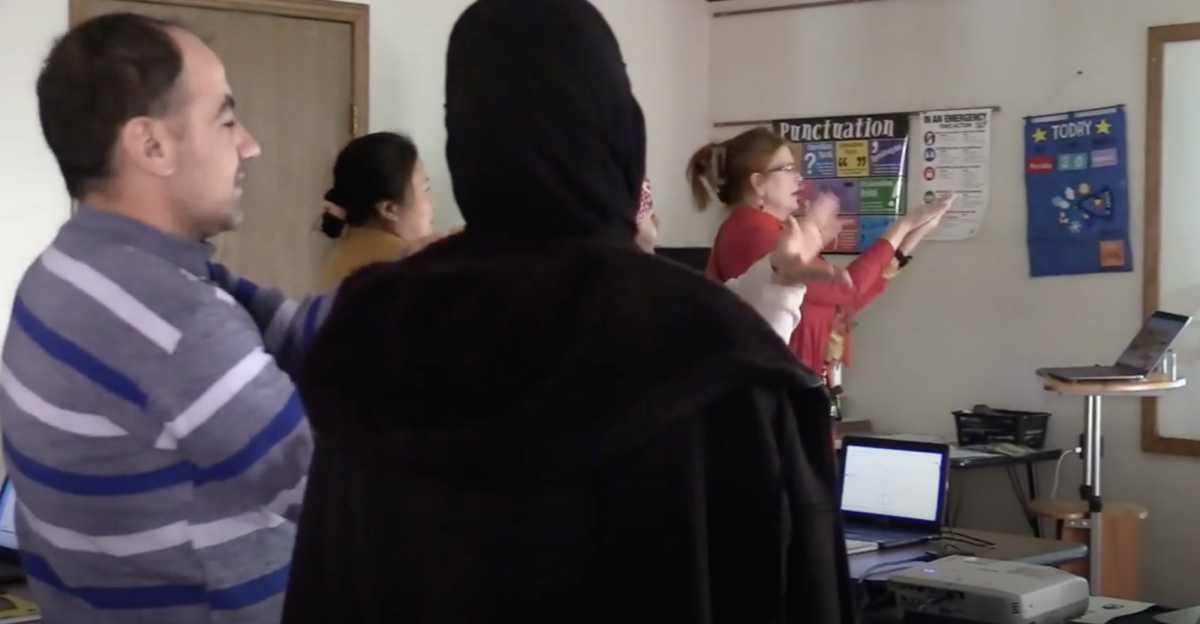By Samantha Stuefer – What would you guess to be the second leading cause of death among teens in Nebraska? Would you think it was car accidents? What about diseases?
It’s actually suicide.
The most common reason found as to why someone commits suicide is because of depression. Depression causes a sense of loneliness, hopelessness, and unclear judgement and decision making. In this depressed state, someone will feel like suicide is the only option.
“It’s a temporary issue, but suicide is a permanent solution,” social worker at Lincoln High Sue Dutton said. “We know that depression is very treatable.”
And it is. Depression can be treated with therapy and antidepressants. But seeking for help can be scary and someone who is feeling suicidal may not know where to go.
But what about people who aren’t from Nebraska? Or even the United States? Who can’t speak fluent English and don’t know or understand our customs?
Language barriers can cause disruption in people seeking mental health. If they cannot speak English fluently, it may be hard for them to get their needs across. And if they do, where should they go? Where are the counselors that speak Arabic, Karen, or anything other than Spanish and English, where are the counselors that can help them?
Lutheran Family Services of Nebraska, Inc., is a resource people who cannot speak fluent English can go to. Dru McMillan is a therapist there and the organization works with refugees and immigrants often.
But, new arrivals and refugees also aren’t accustomed to the way our society and system works. Some do not even know how to use the 911 system.
Dutton had mentioned a family that called the wrong pattern of numbers in an emergency, then did not understand why help did not arrive.
If a teen does not speak fluent English, does not understand our society and how our emergency services work, how do they find help?
Dutton also said in me that the school board is thinking about new ways to get suicide prevention lessons to ELL students. In our health classes in 8th and 10th grade, we learn SOS, otherwise known as Signs of Suicide. We learn about the warning signs and prevention of suicide. If a student cannot speak fluent English, they may not be able to understand what the teacher is saying in regards to the SOS lesson. Also, if they come after 10th grade, they may not ever get the lesson.
“That is a gap that we are learning about and finding and starting to have conversations about how to address,” principal Mark Larson said. “Our 10th grade students, depending on where they are in the ELL journey, will take health their 10th grade year. And some don’t. And, so, all of them eventually have to take that health class as part of their graduation requirement, but for some, depending on their ELL coursework and things like that, they may not take it for quite awhile down the road.”
They are working on getting suicide prevention topics to the ELL students. Administration is starting to have conversations about how they can incorporate discussions about depression and suicide prevention into the ELL curriculum.
The ELL department themselves are also working on ways to talk about tough subjects with students.
“There have been in the past times where we offered sessions with our Level 1 students and Level 2 students about topics such as birth control, suicide prevention, and other things that are generally talked about in classes ,” ELL Department Chairman and teacher Susan Hertzler said.
As a community, we may need to make some adjustments to our mental health plans in schools so that every student gets an equal opportunity to services and help. There are no therapists in Lancaster county that speak Karen or Arabic. There are some that speak Spanish, but that’s about it. If someone speaks something other than Spanish or English, the person more than likely would have to get a translator to be able to go to a therapy session, which costs more, and there is, of course, additional paperwork.
There is help out there. There are 24-hour hotlines, like the National Suicide Prevention Lifeline (1-(800)-273-8255) and they do include translator services. You can talk to a school counselor, nurse, parent, church leader, or even call the hospital. In Lincoln, there are many different places to find therapists and psychiatrists, and there is a wing in Bryan LGH West called CAPS where they will take in patients with mental disorders. There are also online screenings done through BryanLGH (http://screening.mentalhealthscreening.org/bryanhealth) where you can see how your symptoms line up with that of depression or bipolar disorder.
But, what are the signs of suicide? There are many signs, some subtle and some not.
According to SAVE.org, these are some of the top signs:
-Talking about wanting to die or to kill oneself.
-Looking for a way to kill oneself, such as searching online or buying a gun.
-Talking about feeling hopeless or having no reason to live.
-Talking about feeling trapped or in unbearable pain.
-Talking about being a burden to others.
-Increasing the use of alcohol or drugs.
-Acting anxious or agitated; behaving recklessly.
-Sleeping too little or too much.
-Withdrawn or feeling isolated.
-Showing rage or talking about seeking revenge.
-Displaying extreme mood swings.
And one of the biggest signs is a previous attempt of trying to kill oneself. Dutton said one of the first questions she asks someone who comes to her about wanting to kill themselves is if there was a previous attempt and what the plan was. If someone has made a previous attempt, they are serious and more likely to try again.
“Regardless of how you speak or what you speak, the signs are similar,” McMillan said. She also mentioned if a person who was very depressed is suddenly no longer depressed, that is also a big sign.
“That’s concerning because often times that’s the sign you see when kids tend to have a plan in place, they’re thinking ‘I’m going to be out of here soon,’” McMillan said.
If someone is showing signs of suicide, the best thing is to tell an adult. We are told time and time again that’s the best thing to do, and it really is. Always be there for a friend or peer in need of help when they are talking about suicide. According to the Nebraska State Suicide Prevention Coalition, listening and asking what is causing the distress is the best thing a friend can do. But the only thing to ensure complete safety for the one feeling suicidal is to get treatment from an expert. Telling a parent or school counselor or even a teacher can get them to someone who can give them treatment.
Treatments include therapy, medication, and sometimes even hospitalization. At Bryan LGH, there is impatient treatment for youth, ages 5-18. There is also partial hospitalization in-patient treatment as well, where someone may only go during the day, and get to go home at night. Being at in-patient would include daily activities based on the youth’s needs, such as group sessions and individual sessions and assignments. Being in impatient is a safe environment, seeing that the patient is always looked after.
There’s resources for everyone. If you or someone you know is or has contemplated suicide, some resources will be located below.
National Suicide Prevention Lifeline:
1-800-273-8255
Hours: 24 hours, 7 days a week
Languages: English, Spanish
Bryan Counseling Center-Mental Health Clinic:
Address: 2300 S 16th St #201, Lincoln, NE 68502
Phone:(402) 481-5991
Hours: 9AM–5PM (Weekdays)


















